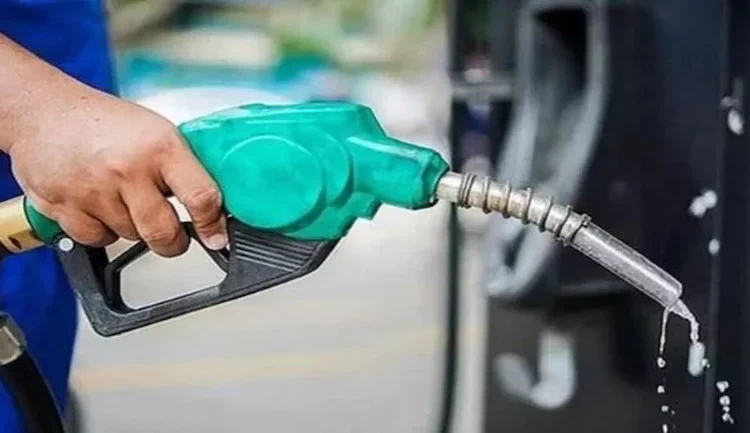Is there anything wrong with fuel subsidy as a policy? Is Nigeria the only country that provides subsidy for the benefit of its citizens? Certainly not! What is wrong with our subsidy regime in Nigeria is corruption in its management and implementation. Unfortunately, sleaze and official fraud has completely taken over and rubbished the process.
Now, the government pays for phantom products that are never delivered. If not, how can a population of about 200 million reportedly consume about 65m litres per day? Countries such as Pakistan with similar population reports consumption that is less than one third of Nigeria’s!
According to World Population Review Rankings of Fuel Subsidies by Countries 2023, across all of the G20 countries, fossil fuel subsidies were approximately $290 billion. For example, China, provides approximately $30 billion in fossil fuel subsidies to a variety of companies, and they are widely believed to provide the highest fossil fuel subsidies in the developed world.
Saudi Arabia also provides a lot of fossil fuel subsidies annually, and they are estimated to be approximately $28.7 billion. Russia is also known to provide a lot of fossil fuel subsidies to its companies. Russia is one of the biggest producers of oil in the world, and it provides approximately $24 billion in fossil fuel subsidies every year.
Yes, the United States also provides a lot of fossil fuel subsidies every year. It does not provide nearly as many subsidies as the other countries mentioned above, but they are still significant. The United States is estimated to provide a total of $20 billion in fossil fuel subsidies every year. Approximately 70 percent of these subsidies come from the federal government, and another 30 percent come from the state government. There are some states that provide more fossil fuel subsidies than others.
We can therefore see that there is nothing wrong with fuel subsidy because that is obtainable all over the world, the problem in the case of Nigeria is corruption in the implementation of the subsidy regime.
Corruption is the reason why fuel subsidy in Nigeria is different from that of United States, China, and Saudi Arabia among others. There are many in United States and around the world who want subsidy on fossil fuel to be removed, but their reasons are different from that of Nigeria’s government.
The biggest reason why a lot of people in developed countries are concerned about fossil fuel subsidies is that they hamper the development of renewable energy sources. Fossil fuel companies do not want renewable energy resources to be developed because it will hurt their pocketbooks. If people are able to use renewable energy, not as many people will rely on fossil fuel.
At the same time, fossil fuel subsidies lower the price of fossil fuels, which encourages the use of fossil fuels. This means that not enough people are getting behind renewable energy sources, and fossil fuels continue to harm the environment. For this reason, there are a lot of people who are campaigning to end fossil fuel subsidies. That way, more people will be interested in the development of renewable energy.
Like I stated earlier, the problem with fuel subsidy in Nigeria is squarely caused by those saddled with the responsibility of its implementation. Our ranking as a fantastically corrupt country is essentially as a fallout of the corruption in the Nigerian oil industry! Nigeria’s oil industry is the epicentre of that corruption which is enabled by government officials and their corporate sector collaborators.
A Dataphyte review of the Nigerian National Petroleum Company reports shows that petrol consumption figures as at August 2021 was 1.516 billion litres. This would mean the average daily consumption of petrol in the country as at August, 2021 stood at 48.903 million litres/per day. Consumption rates between January to August 2021 shows that the average daily consumption for the eight months stood at 55.39 million litres.
In January 2022, the daily consumption figures quoted by the country’s former finance minister, Zainab Ahmed was 65.7 million litres daily. With the former finance minister stating a figure of 65.7 million litres per day, it would imply that between the first eight-month period in 2021 (January to August) and January 2022, the consumption rate increased by 10.31 million litres per day.
In January, the Nigerian National Petroleum Company demanded a N3 trillion subsidy fund for the 2022 fiscal year. The demand was premised on a daily consumption rate of 65.7 million litres and an oil price peg of $80 per barrel. The House of Representatives revealed that it would probe the 65.7 million daily oil consumption of the country even as the Nigerian Labour Congress and governors expressed doubts on the accuracy of the figure.
In 2018, the National Bureau of Statistics was quoted as stating that Nigeria does not have an official figure on daily fuel consumption. The daily rate of consumption determines how much will be spent on subsidy; and the bill for subsidy payments as presented by the NNPC has been subject to arguments on the authenticity of figures and subsequently the amounts spent on Subsidy. Although the country’s then minister of finance did not explain how the 65.7 million litres daily consumption was arrived at, the organization in the past revealed that it relies on figures provided by the Petroleum Products pricing regulatory agency (PPPRA).
The NNPC has not provided any methodologies on how they arrive at the fuel consumption rates used to determine the subsidy bill it presents to the government. Even within interconnected petroleum agencies, they can’t seem to agree on the consumption figures. For instance, in 2020, the Department of Petroleum Resources put the fuel consumption figure at 38 million litres daily while the Ministry of Petroleum Resources put it at 52 million litres daily consumption. Contestable fuel consumption figures subject the amounts claimed as spent on subsidy as well as the amount declared as revenue to distrust, especially in a country like Nigeria with endemic corruption. Overstated consumption figures, overstated or understated revenue figures and huge subsidy bills are all harmful to the country’s fiscal balance especially with increasing budget deficits and the need to generate more revenue.
It is obvious that there is no problem with fuel subsidy because fuel subsidy is necessary to make the product affordable to millions of Nigerians who live in the poverty capital of the world. Government pays fuel subsidies to keep the price of fuel affordable for citizens, as well as to stimulate economic growth. Fuel subsidies are a form of government intervention to reduce the cost of fuel by providing direct financial support to oil companies, and as such, subsidize the product to consumers.
The only reason why most people are clamouring for subsidy removal lately is because of the pervasive corruption in the system. If corruption is removed from the system, the subsidy would not amount to one tenth of the current inflated subsidy bill.
What is stopping the government from stopping the corruption in fuel subsidy implementation? Nothing is stopping the government from tackling corruption except the fact that it had been alleged that beneficiaries of the billions of dollars spent on subsidy are members of the ruling party. So, why should ordinary Nigerians be made to suffer as a result of the failure of government to stop corruption in the oil sector?
Another reason always thrown around for subsidy removal is because fuel imported at great cost to the nation is sold cheaply in neighbouring countries like Niger, Chad, Benin Republic and Cameroon among others. Those who make this spurious argument forget that one of the responsibilities of government is to secure our borders and protect the country from physical and fiscal attacks.
How long shall Nigerians suffer because of the ineptitude of our government leaders? Why should ordinary Nigerians not enjoy cheap fuel because their government unashamedly failed to protect the country’s borders so as to stop the smuggling of imported fuel from Nigeria to neighbouring countries.
In summary one can say that rather than end subsidy, Nigerian authorities should tackle corruption. Fuel subsidy is not our problem, corruption is.
Senator George Akume: A Round Peg In Round Hole
President Bola Ahmed Tinubu scored a major plus by announcing the appointment of the former Benue State governor and immediate past minister of Special Duties, Senator George Akume as the Secretary to the Government of the Federation (SGF).
This is one appointment where he got it right. This appointment can only be described as putting a round peg in a round hole.
Those who know Akume say he is urbane, humane and accessible. A devout Christian and committed philanthropist, Senator Akume has been one of the voices for progress and development in North Central and Nigeria as a whole.
Senator Akume, with his wealth of experience as a former permanent secretary in Benue State Civil Service, Governor of Benue State for two terms, Senator of Federal Republic of Nigeria and Minister of Special Duties and Inter-Governmental Affairs, he is well equipped to be the engine room that delivers for the new administration of Asiwaju Bola Ahmed Tinubu.
MAY NIGERIA REBOUND




